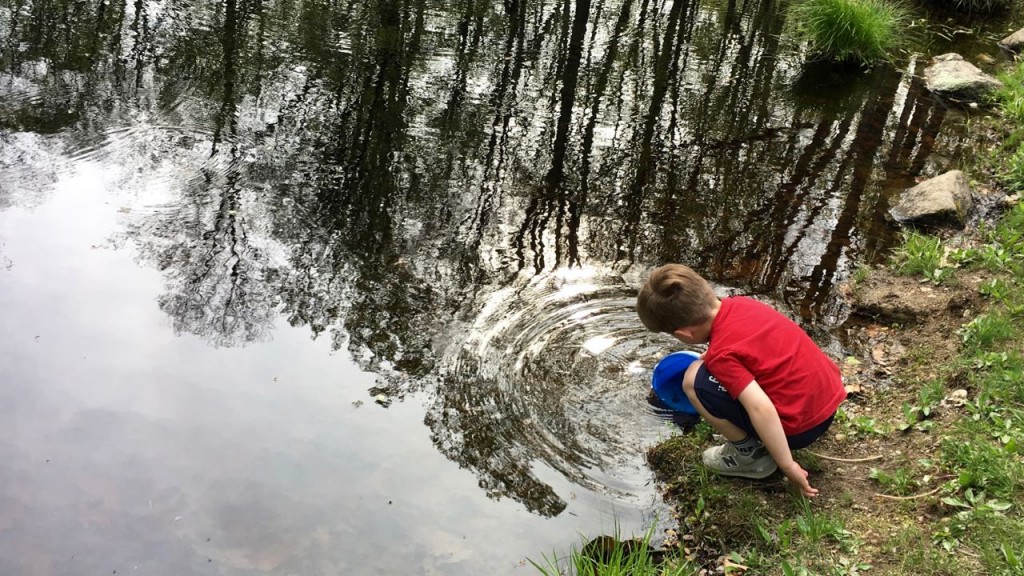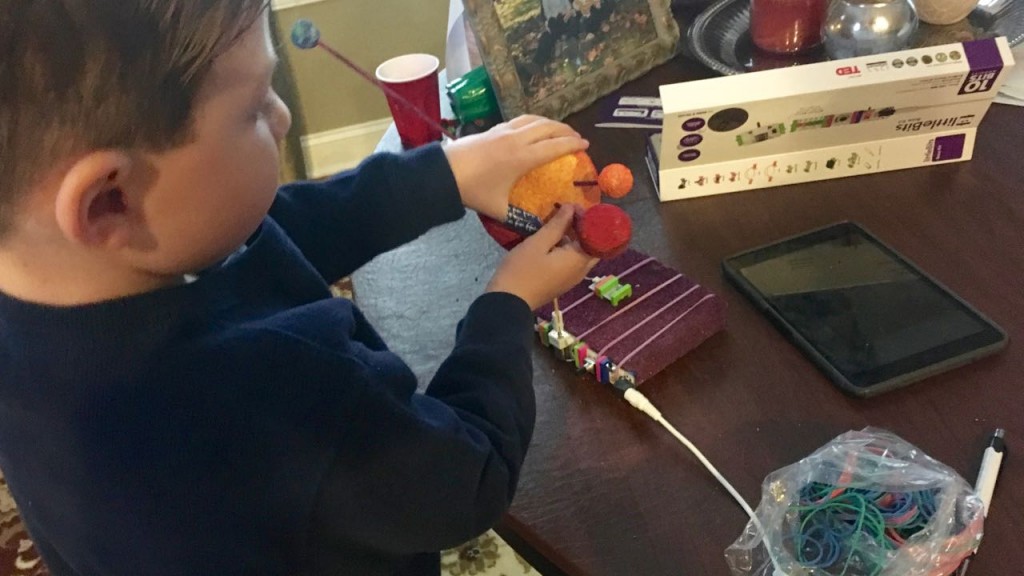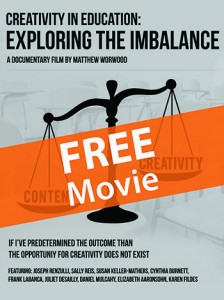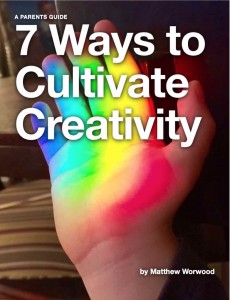A couple of years ago I become a member of the Connecticut Association of Gifted and Talented, I was particularly interested in this group of educators/parents because there was a desire to seek out opportunities to engage and cultivate creative thinking. Many of the educators were graduates from gifted and talented programs, where as the parents had children who had been identified as such. In my interaction with the latter, I came to realize some of the challenges and anxiety that exists for children who are talented and gifted, and more importantly the importance of intervention and support at an early age. – SCROLL DOWN FOR INTERVIEW.
If you’re a parent you might be interested in the following articles from DadsforCreativity: Introducing Design Thinking, Movie Making, 7 Ways to Cultivate Creativity at Home, Creativity in Education.

Taking your children on a nature walk helps engage their curiosity for the world and is one of my 7 ways to cultivate Creativity at home.
Unfortunately, many schools lack the resources or training to adequately accommodate talented and gifted students, including the many who have an innate desire to create and make – I firmly believe parents of talented and gifted children can benefit from some of the content shared at DadsforCreativity.com, but I think it’s important that they primarily seek out a community of parents and educators who are not only subject matter experts, but also experienced in having a child who is talented and gifted.

Don’t forget to Follow us on Facebook! We want more likes!
Do you have a child who is Talented and Gifted? One of the things to consider throughout this process is your child’s happiness and well-being, I encourage you to get informed, ask lots of questions, and locate resources in your area. Below is a 3 Question Interview, from the Connecticut Association of Gifted and Talented (CAG), it primarily contains resources for parents who suspect there children might be gifted and talented, or have been alerted to the possibility from experienced preschool or elementary school teachers.
How do we define a child who is talented and gifted?
There are many definitions as to what makes a child ‘Talented and Gifted’ but there is no concise, universal definition:
From the National Association of Gifted Children (NAGC): “Gifted individuals are those who demonstrate outstanding levels of aptitude (defined as an exceptional ability to reason and learn) or competence (documented performance or achievement in top 10% or rarer) in one or more domains. Domains include any structured area of activity with its own symbol system (e.g., mathematics, music, language) and/or set of sensorimotor skills (e.g., painting, dance, sports). Nearly every state has its own definition of gifted and talented students. – See more here:
From the Davidson Institute for Talent Development: Many parents say, “I know what giftedness is, but I can’t put it into words.” This generally is followed by reference to a particular child who seems to manifest gifted behaviors. Unfortunately, there are many misconceptions of the term, all of which become deterrents to understanding and catering to the needs of children identified as gifted. Let’s study the following statement:
“Giftedness is that precious endowment of potentially outstanding abilities which allows a person to interact with the environment with remarkably high levels of achievement and creativity.”
From Hoagie’s Gifted: What is giftedness? There is no universal definition. Some professionals define “gifted” as an intelligence test score above 130, two or more standard deviations above the norm, or the top 2.5%. Others define “gifted” based on scholastic achievement: a gifted child works 2 or more grade levels above his or her age. Still others see giftedness as prodigious accomplishment: adult-level work while chronologically a child. But these are far from the only definitions.
Former U. S. Commissioner of Education Sidney P. Marland, Jr., in his August 1971 report to Congress, stated:
“Gifted and talented children are those identified by professionally qualified persons who by virtue of outstanding abilities are capable of high performance. These are children who require differentiated educational programs and/or services beyond those normally provided by the regular school program in order to realize their contribution to self and society”.

There’s lots of toys that encourage children of all ages and talents to create and make. One of my favorites is Little Bits
What should parents do if they suspect their child might be Talented and Gifted?
There are many types of tests available if you suspect your child might be G/T. Identifying G/T students is mandated in the State of Connecticut so many public schools test for G/T, usually beginning in the third grade. For parents who don’t want to wait until their child is in third grade, or who don’t want to rely solely on the school’s assessment, there are independent testing resources available and the Connecticut Association for the Gifted (CAG) has a list of resources to share, all you need do is reach out to info@ctgifted.org and ask for our list of testing resources. For a list of national and international resources, check Hoagies’ Gifted’s psychologists page here.
What are some of the resources available for parents of a Talented and Gifted child?
Minds in Motion™ events take place an average of 8-10 times per year in various locations around the state of Connecticut from fall through spring. Minds in Motion™ is the Connecticut Association for the Gifted (CAG)’s signature enrichment series which offers exciting, fast-paced, interactive workshops for every child with every interest, Kindergarten – 8th grade on Saturday afternoons.
Adults can attend thought-provoking, special-interest workshops and a keynote free of charge at every MIM™ event. At Minds in Motion™ adults will also receive free literature, network with fellow parents, and learn about resources, after-school programs, camps, books, and other educational tools beneficial to your child. There are also many other resources available too, some of which have their own programs and tools. Some of these resources include: AEGUS – Association for the Education of Gifted Underachieving Students, CT State Department of Education – Gifted and talented resource page, CTY – Johns Hopkins’ Center for Talented Youth, Eric Digests – Repository for materials from the former ERIC Clearinghouse, NAGC- National Association for Gifted Children, Neag – UConn’s Center for Gifted Education and Talent Development. SENG- Supporting Emotional Needs of the Gifted and http://www.smartkidswithld.org/ – Smart Kids With Learning Disabilities. There are so many others. Check CAG’s list here.
The interview above has been shortened – for the original interview click here.
 FREE FILM on Creativity in Education
FREE FILM on Creativity in Education
Creativity in Education: Exploring the Imbalance, is a documentary film that explores Creativity in education. The film is available on Amazon or can be access for free by simply commenting below or subscribing here.
 FREE BOOK on Cultivating Creativity
FREE BOOK on Cultivating Creativity
7 Ways to Cultivate Creativity is a FREE eBook for parents who want are looking for ideas on how to cultivate creative thinking skills at home. Subscribe here to download the book.

